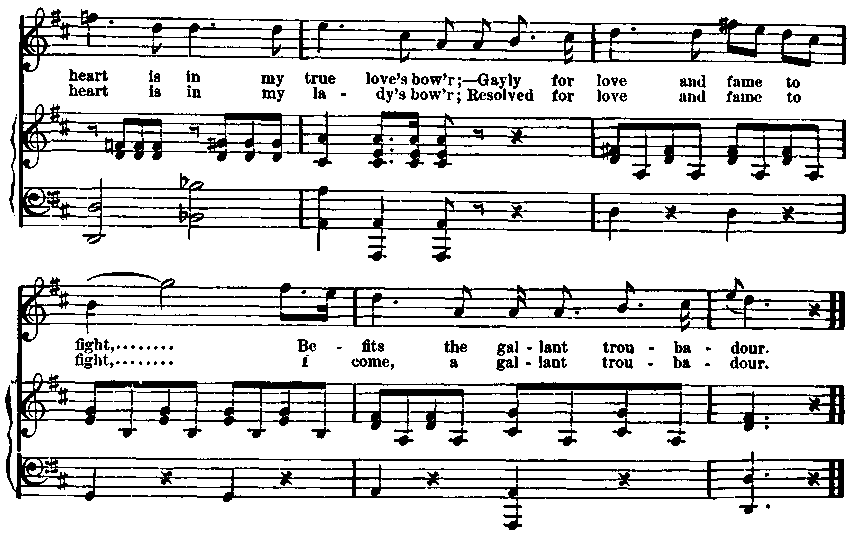Familiar Songs - Their Authors & Histories
300 traditional songs, inc sheet music with full piano accompaniment & lyrics.
| Share page | Visit Us On FB |
|
THE GALLANT TROURADOUR |
509 |
|||
 |
||||
|
E'en when the battle's roar was deep,
With dauntless heart he hewed his way, 'Mid splintering lance and falchion-sweep,
And still was heard the warrior lay : — " My life it is my country's right,
My heart is in my lady's bow'r; For love to die, for fame to fight,
Becomes the valiant TrOURadour." |
Alas ! upon the bloody field
He fell, beneath the foeman's glaive, But still, reclining on his shield,
Expiring sang th' exulting stave: — " My life it is my country's right;
My heart is in my lady's bow'r; For love and fame to fall in fight
Becomes the valiant TrOURadour." |
|||
|
DUNOIS THE BRAVE.
Hortense Eugenie Beauharnais, mother of Napoleon III., has long enjoyed the reputation of being both author and composer of the following song. Under its original title of " Partant pour la Syrie," it became a favorite French national melody; and under the title of u Dunois the Brave," Sir Walter Scott's translation of it was one of the drawing-room favorites in America fifty years ago. It was written and composed upon the departure for Syria of the Count of Flahaut, one of the flatterers of Queen Hortense. Drouet, who was her musical secretary, has left laughable accounts of the way in which he was compelled by her imperious Majesty to reduce her crude airs to rhythm and melody, and if the truth were ever told of royal highnesses, this fine air might perhaps own an humbler origin. Queen Hortense, of Holland, daughter of Alexandre and Josephine Beauharnais, was born in Paris, April 10, 1783, and died at Arenberg, Switzerland, October 5, 1837. |
||||
 |
||||